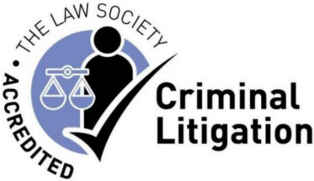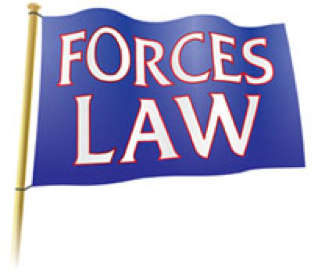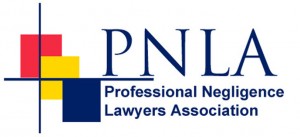Solicitors Specialising in Business Tenancy Disputes
UK commercial property disputes have a variety of causes – but they share one thing. They can be expensive, stressful and time-consuming for every
one involved. Fortunately, it is rare for such tenancy disputes to end up in Court; most are settled via Alternative Dispute Resolution (ADR) methods such as negotiation and/or mediation. Not least because taking commercial property disputes to a final contested hearing at court often involves eye watering levels of legal costs – and the risk that if you lose, you could have to pay the other party’s costs as well as your own.
But sometimes formal legal action is necessary – and rest assured our technical expert team can help you with your commercial property dispute.
Worried about a Business Tenancy Dispute? We always offer FREE initial phone advice with no strings attached. Call our highly experienced Property Dispute Resolution team on 01722 422300 or FREEPHONE 0800 1404544.
Whatever the reason and circumstances of commercial property disputes, it is always best to work with an experienced Solicitor who has the skills and knowledge to avoid, in so far as possible, expensive litigation from being the only way to resolve the dispute. And here at Bonallack & Bishop, we have the expertise you need. Our 3 strong property dispute team are genuine specialists. Resolving property related disputes or litigation concerning is all they do.
What are the most common types of commercial property disputes?
Difficulty meeting past and current rent payments is only one type of commercial property dispute.
And apart from commercial property rent arrears, business tenancy disputes can occur over many other issues. Some of the most common include the following:
· Breach of a covenant, for example, a tenant subletting part of the premises without their landlord’s consent as prescribed for in the lease agreement.
· Serious damage to the property.
· The tenant causing a nuisance.
· Service charges.
· Insurance cover.
· Maintenance of the property.
· The procedure for serving Notices on tenants.
At the heart of many of these disputes is the fact that in a business lease, both parties have competing objectives. The landlord aims to maximise their investment and the tenant wants to control their overheads. Tensions can quickly arise.
Business tenancies –what is a dilapidation claim?
The term dilapidations refers to a tenant’s maintenance and repair obligations during and at the end of their commercial lease agreement term.
Leases that are drafted by an experienced Commercial Property Solicitor should include the following:
· Repair covenant – the tenancy agreement will state that the tenant must keep the property ‘in repair’ or ‘good repair’, ‘good and tenantable repair’ or ‘substantial repair’. Case law suggests that there is little difference in the meaning of these terms. However, if the covenant states the tenant must keep the property in ‘good repair and condition’ they may need to do work beyond general repair, for example, put the property in good and tenantable condition if it was not so when they collected the keys.
· Decorating covenant – the tenant will normally be required to decorate the premises throughout the tenancy and also in the last year of the tenancy. The standard of decoration should be stated in the lease to provide certainty.
· Compliance with statute covenant – the tenant will be required to comply with all laws including primary and secondary legislation, Codes of Practices, and relevant guidance.
· Alterations and reinstatement covenant – most modern business leases have a clause that restricts the alterations a tenant can make on a commercial property. If no covenant exists, the landlord can only refuse a request to alter the property in limited circumstances. If alterations have been permitted, a covenant to reinstate will require the tenant to remove the physical changes to the premises and put it back as near as possible to its original state.
· Yield up covenant – a broad clause aimed to ensure that when the lease expires, the landlord will get its property back from the tenant in the physical condition to be expected if the tenant had complied with all the covenants.
Dilapidation disputes usually occur due to a breach of one of the above covenants. Most commercial lease disputes about dilapidations are resolved through ADR and rarely end up in Court.
Commercial Property Disputes – what causes problems with service charges?
Few business tenancy disputes are more complex than those involving commercial property service charges. Both parties are working to achieve opposite objectives. Landlords want to ensure they recover their maintenance costs. Tenants, on the other hand, are keen to control their overheads and want to see value for the service charges they are paying.
Commercial property service charge disputes can arise from:
· Annual increases in service charges.
· Ambiguous charges for maintenance.
· Excessive fees for services such as security and/or agents.
· The landlord not breaking down maintenance costs.
The commercial lease itself may provide a disputes resolution process, most commonly the appointment of an independent expert to assess the disputed charge.
And the Royal Institution of Chartered Surveyors, themselves, recommend that business lease disputes are settled by ADR (in the RICS 2018 Professional Statement).
How can I recover possession of my commercial property from the tenant?
There are several reasons why a landlord would want to recover possession of their commercial property, the main one being that the tenant is in breach of a covenant under the lease. This could include not paying rent, causing damage to the property, or causing a nuisance to neighbours.
Forfeiture is where a landlord retakes possession of a property from the tenant, ending the lease. The process of a business tenant’s right to occupy the building they rent is very different from residential eviction. Given the draconian nature of forfeiture, there are strict rules stating when and how it can be exercised apply.
Never enter the property by force as this could lead to criminal prosecution.
There are two ways to exercise forfeiture and complete your commercial eviction:
a) Peaceable re-entry – here the landlord peacefully re-enters the premises and changes the locks. Although this is the most cost-effective and fastest method, it is also highly risky. The tenant can apply to the Court for relief from forfeiture and claim compensation for wrongful eviction.
b) Making an application to the Court.
It is remarkably easy for a landlord to inadvertently waive their right to forfeit a commercial lease. Simply reminding a tenant that their rent is overdue could be construed as acknowledging the continuation of the tenancy, meaning the landlord has waived their right to forfeiture.
Given the complexity of the law of forfeiture, landlords should always seek legal advice before attempting to retake possession. Fortunately, our property dispute team have good experience of handling forfeiture claims for commercial landlords.
Click here to read more about the forfeiture of a commercial lease
Business tenancies –what is a Protected Lease?
The Landlord and Tenant Act 1954, sections 24-28 provide that all commercial tenants have an automatic right to renew a lease upon expiry (or receive compensation for an inability to do so) unless the tenant has expressly waived the provisions of the Act. This is known as Security of Tenure or a protected tenancy.
Because of the risk associated with contracting out of Security of Tenure, both the landlord and tenant must follow a strict procedure for the exclusion of the provisions to be valid. The steps are:
· The landlord must provide notice in writing that the tenant will not have the automatic right to renew the lease at the end of the term; and
· The tenant must swear a statutory declaration at an independent firm of Solicitors in response to the written ‘warning notice’ stating they are aware and accept the rights they are forgoing.
My lease is outside out of the Landlord and Tenant Act 1954 -what does that mean?
If a tenant contracts out of security of tenure, the landlord is under no obligation to renew their lease after it expires. For tenants this exposes them to considerable risk as they may have invested money in the property.
Furthermore, the loss of customer goodwill generated by remaining in the same location year after year cannot be underestimated. This is why seeking independent legal advice is essential for tenants considering contracting out of the security of tenure provisions.
Do I need a solicitor when entering a commercial lease?
In short, we believe you do need a solicitor to rent commercial property. It’s very important to have the right legal advice when entering into a long-term commitment to rent.
The history of English case law is littered with tales of tenants stricken with adverse consequences. For example, in NYK Logistics (UK) Ltd v Ibrend Estates BV [2011] EWCA Civ 683, the Court ruled the tenant had not exercised its break clause correctly and therefore had to continue to pay eight months rent until the lease’s formal expiry date. All because contractors remained in the property fixing repairs six days after the termination date. The landlord successfully argued this breached the lease term requiring vacant possession upon the tenant quitting the property.
The key to avoiding a commercial property dispute developing is to seek legal advice on your commercial lease from an experienced Solicitor as soon as a suitable property is found. A Solicitor will advise a tenant on how the provisions of the lease will affect them in the short and long term. They can also assist with negotiating certain clauses if by doing so the tenant’s interests are better protected.
How is mediation used to resolve commercial property disputes?
Most clients are shocked to discover how expensive going to Court is; not only in terms of money but also time and mental health. The latter is particularly true for owner-operators and SMEs. Most landlords are companies, large enough to be insulated from the strain of litigation. Tenants on the other hand have to manage the dispute on top of running their business.
Mediation is a form of ADR. It provides a cheaper and faster method of resolving commercial disputes. Furthermore, it is confidential, meaning the professional reputations of the parties are not compromised as they may be in public Court proceedings.
Working with a trained Mediator, parties to a Commercial Property Dispute can voluntarily reach a win-win solution. Also, the mediation process can assist both parties to understand each other’s position, mitigating the risk of future disputes developing.
What happens when a commercial landlord becomes insolvent?
If a commercial landlord becomes insolvent the tenant may not become aware of the fact until they receive a letter from the appointed Insolvency Practitioner. As far as paying rent and service charges, this will carry on as normal. However, it may be that to pay back the landlord’s creditors, the landlord company may be broken up and the freehold of the commercial property sold.
Tenants have a ‘right of first refusal’ in situations where the landlord becomes insolvent. This means they will be given the option to buy the property they lease before it is advertised.
If the freehold has no value or the value is difficult to access, the liquidator can disclaim the freehold. If this occurs, the responsibility of the property reverts to the Crown and the tenant can continue to occupy the premises under the same terms and conditions except they will pay rent to the Crown.
For tenants concerned about who will undertake service and maintenance during the liquidation phase, an application can be made to the First-Tier Property Tribunal to have a company appointed.
Click here to read more about how the First-Tier Property Tribunal works.
FAQs
How to resolve commercial disputes?
The best way to deal with a tenancy dispute is to try to resolve matters through negotiation. It is often helpful to ask a commercial property solicitor to write a formal letter on your behalf, setting out your case and what you want to happen. Those involved in the disagreement may be prompted to settle if they know that a lawyer is involved on your behalf.
If an agreement cannot be reached, the next best option is alternative dispute resolution, such as mediation or arbitration. In mediation, a neutral mediator will work with both tenant and landlord to try to find a way forward by agreement. In arbitration, an arbitrator examines evidence presented by both sides and makes a binding decision.
Alternative dispute resolution is usually faster and more cost-effective than litigation when it comes to resolving commercial tenancy disputes. It can also help to reduce conflict. As a last resort, you can consider an application to Court if you are not able to deal with matters in any other way.













